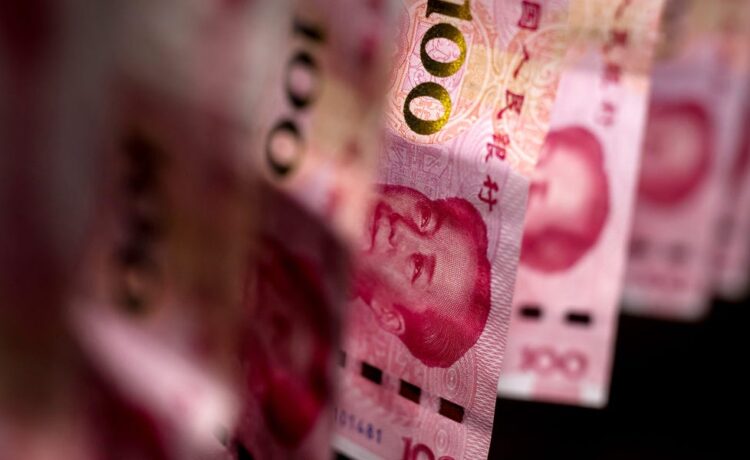- The Chinese yuan was the fourth most used currency in global payments, SWIFT data showed.
- It’s share reached 4.61%, a record high, and was nearly double last year’s levels.
- That’s as Beijing has pushed to internationalize the yuan through cross-border lending and currency swaps.
The Chinese yuan’s share of global payments hit a record high and became the fourth most used currency last month, according to data from the SWIFT Financial System.
In November, the yuan was used in 4.61% of transactions, climbing from 3.60% in October and overtaking the Japanese yen’s share, which slipped to 3.41% from 3.91%.
The world’s other top currencies also lost a bit of share during the month. The dollar’s dipped to 47.08% from 47.25%, the euro’s fell to 22.95% from 23.36%, and the pound’s eased to 7.15% from 7.33%.
While the moves for the top three currencies and the yen are slight on an individual basis, collectively they add up to more than 1 percentage point of share.
And viewed from a yearly comparison, the latest figures show the yuan’s global share has nearly doubled from November 2022, when it made up 2.37% of payments.
Its steady uptick comes on continued efforts to crack the greenback’s global hegemony, with Beijing pushing to internationalize the yuan as a solid contender.
Through this year, cross-border yuan lending has jumped to 28% last month, while the People’s Bank of China now holds over 30 bilateral currency swaps with foreign central banks, such as Saudi Arabia and Argentina.
In September, the yuan also took second place in global trade finance, ousting the euro. That’s as Beijing’s lower interest rates made trade financing more affordable, the Financial Times reported.
Meanwhile, China and Russia have almost fully phased out the dollar from their bilateral trade, Russian Prime Minister Mikhail Mishustin said this week.
Over 90% of trade between the two nations is done with either the yuan or the ruble, he said, according to Russia’s state-run news agency TASS.






